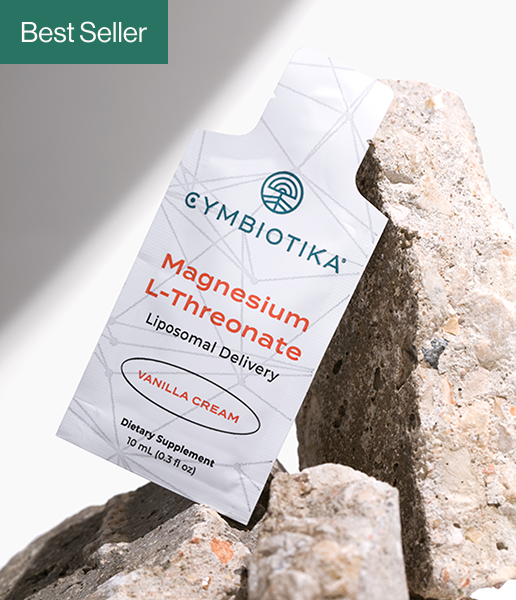
B12
As 80% Methylcobalamin, 20% Adenosylcobalamin
Cobalamin (Vitamin B12) is used in the metabolism of every cell in the body. Small amounts can be synthesized by gut flora, but this is not absorbable as it is produced in the colon, and nutrient absorption occurs in the small intestine. Therefore B12 must be obtained in the diet in usable forms. B12 is needed for bone marrow to bring young red blood cells to full maturity. The 2 most bioactive forms of B12 are Methylcobalamin and Adenosylcobalamin. Cyanocobalamin, a synthetic form of B12, is commonly seen in supplements while methylcobalamin is the naturally occurring form.
Methylcobalamin(MeB) and Adenosylcobalamin (AdoB) are the active forms of B12 in the body, with MeB existing in the cytosol of the cell and AdoB present in the mitochondria. The cytosol is the fluid inside the cell where all cellular functions occur, and the mitochondria is the center where energy production occurs. This is important to understand how much B12 influences all biological functions. Folate also plays a great role in utilization or deficiency of B12, which you can learn more about on our page regarding L-Methylfolate.
B12 is vital for bones, blood and heart health, neurological function, mood, memory, and much more. Deficiency can result in debilitating conditions such as megaloblastic anemia (inability to synthesize DNA which results in larger, instead of more, cells from inability to divide) and neuropathy (dysfunction or disease of nerves presenting as weakness or numbing sensations). It is important to note that serum B12 levels can present as normal and no reliable test exists at this time for accurate assessment of B12 levels. Clinicians are encouraged to assess the overall condition of patients.
MeB and Folate together are crucial for brain development during childhood, and essential for plant-based children to receive enough absorbable B12 for proper development. AdoB is important for metabolism of carbohydrates, fats, and proteins, and develops myelin for the body. The synthesis of myelin via B12 creates the myelin sheath that coats our nerves. This sheath, made of fatty acids and proteins, is the conductor of electrical impulses throughout the entire nervous system. Deficiency leads to symptoms of neuropathy.
B12 is found in MeB is one of the required coenzyme forms of B12 needed to utilize this vitamin, recommended in combination with AdoB for treatment of B12 deficiency. MeB and its other required cofactor, AdoB, are. AdoB is synthesized inside the body from MeB intake, which means that this blend takes care of that step forthe body. Taking the 2 together in this blend with the other ingredients listed below creates the perfect offering for B12 deficiency and its side effects.
B12 (as 80% Methylcobalamin and 20% Adenosylcobalamin) are found in Cymbiotika's Synergy B12 formula ultimate cellular metabolism for brain, heart, blood, memory, mood, and overall neurological health. These are the 2 bioactive and naturally-occurring forms of B12, making this product superior to other B12 supplements. B12 requires folate for DNA synthesis, so we added the most bioavailable form of L-methylfolate (VItamin B9) and Fulvic Minerals (Shijalit) for ultimate cellular function and detoxification of toxins and heavy metals, a must for those with MTHFR gene. Learn more about MTHFR gene mutation on our L-Methylfolate page.
FOUND IN THE FOLLOWING PRODUCT(S)
Works Cited & Clinical Research
Human studies published in the last 10 years
Treatment of vitamin B12 deficiency–Methylcobalamine? Cyancobalamine? Hydroxocobalamin?—clearing the confusion
Vitamin B12 deficiency
Cobalamin status and its relation with depression, cognition and neuropathy in patients with type 2 diabetes mellitus using metformin
Long term treatment with metformin in patients with type 2 diabetes and risk of vitamin B-12 deficiency: randomised placebo controlled trial
The Neuropsychiatry of Vitamin B12 Deficiency in Elderly Patients
How prevalent is vitamin B12 deficiency among vegetarians?










